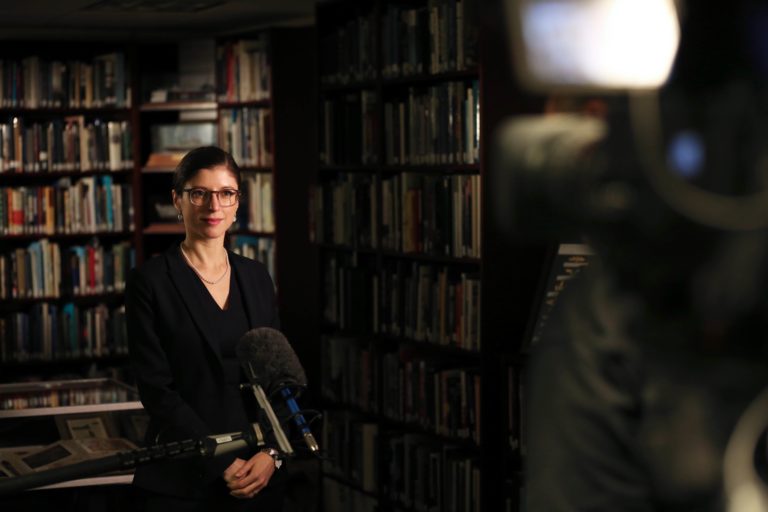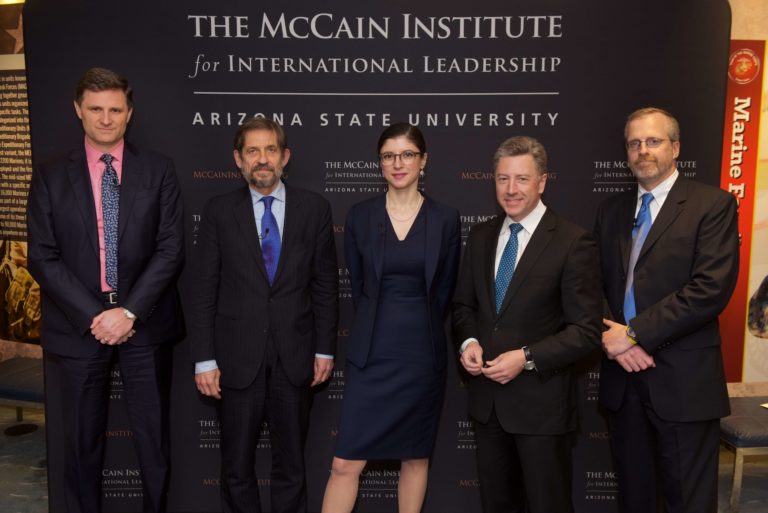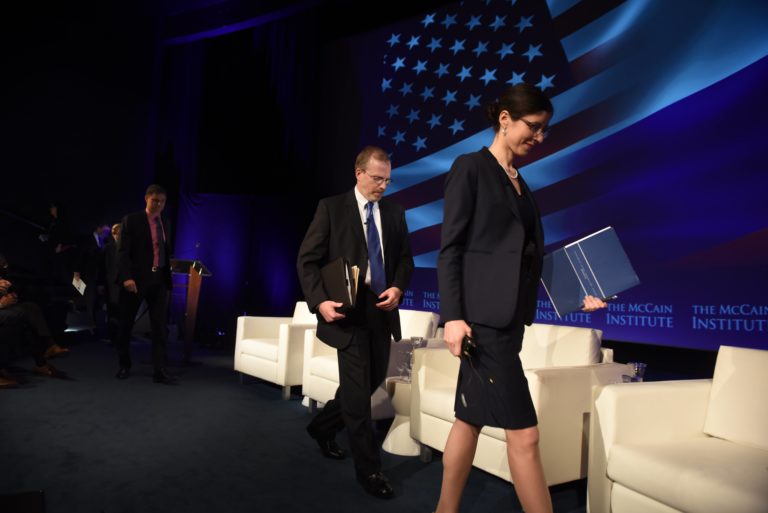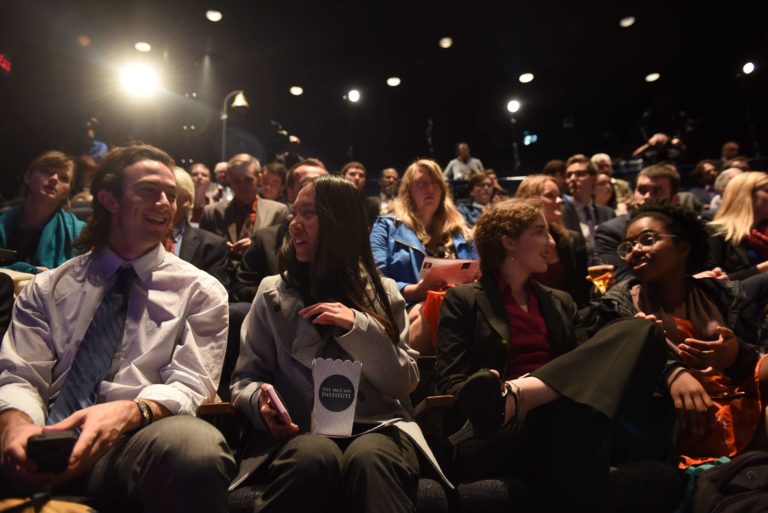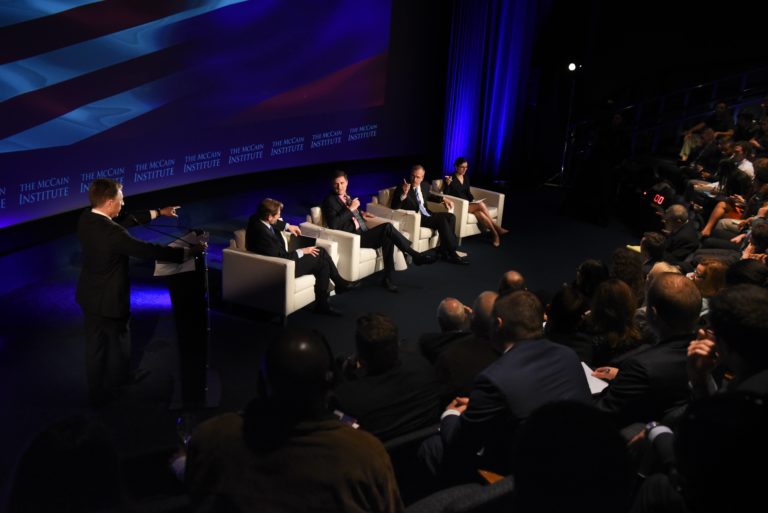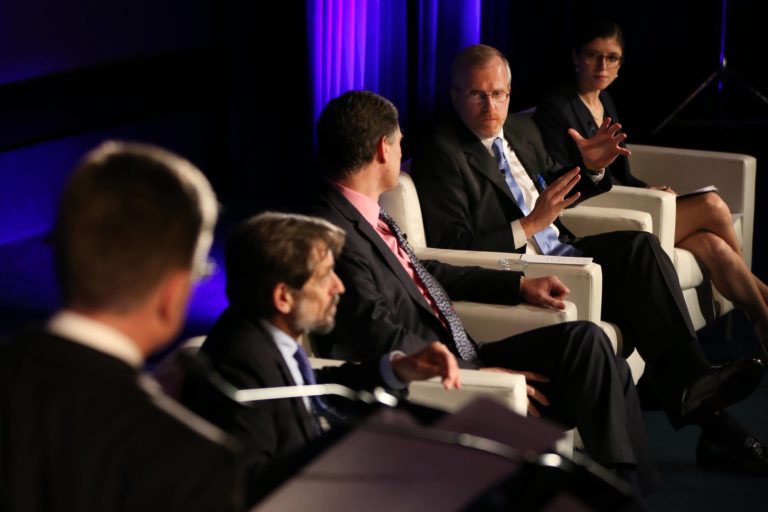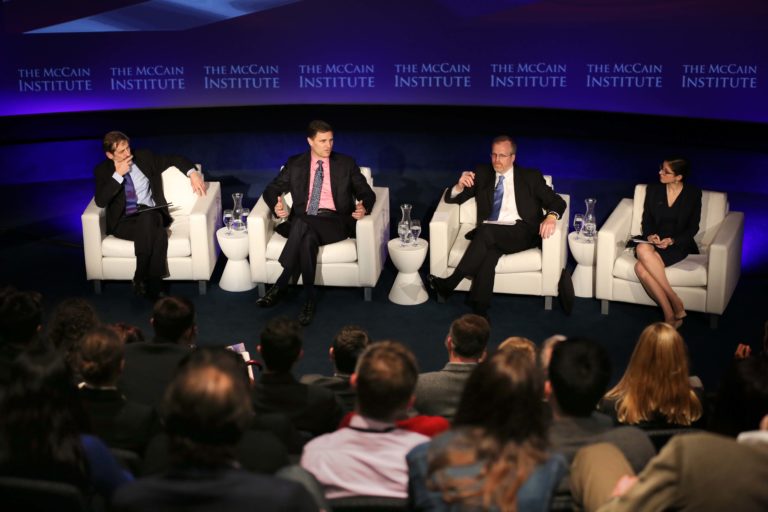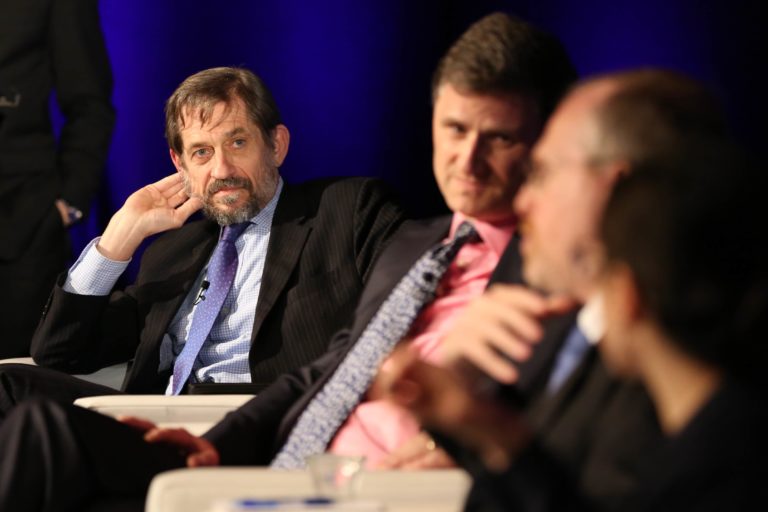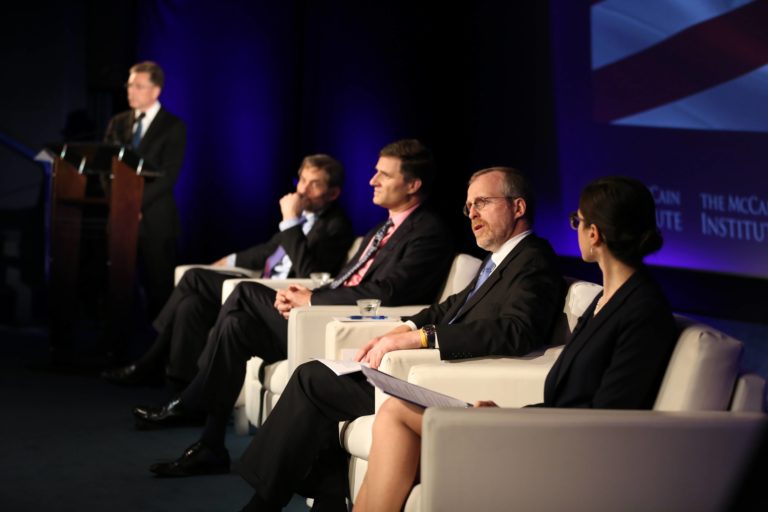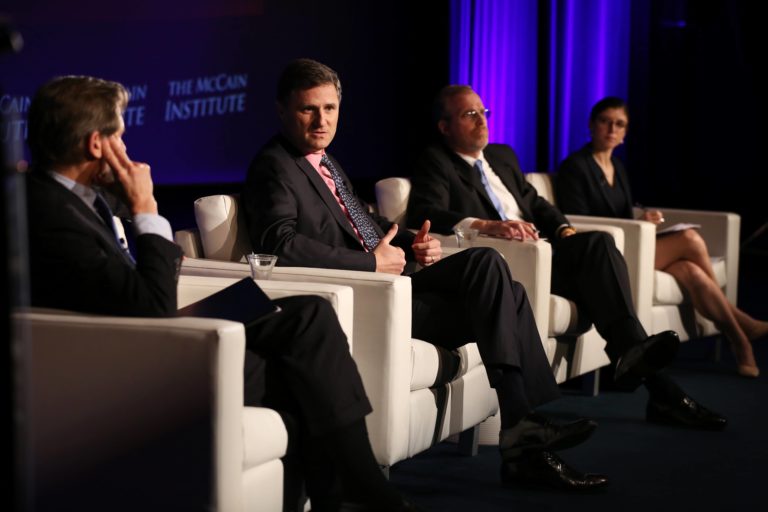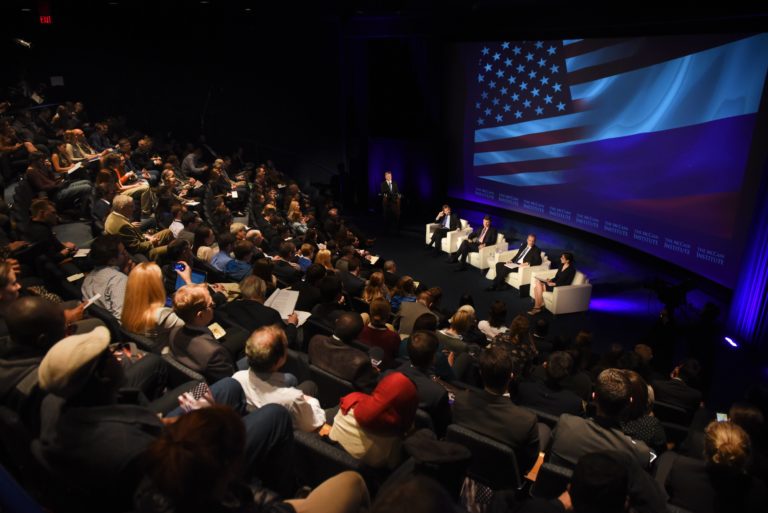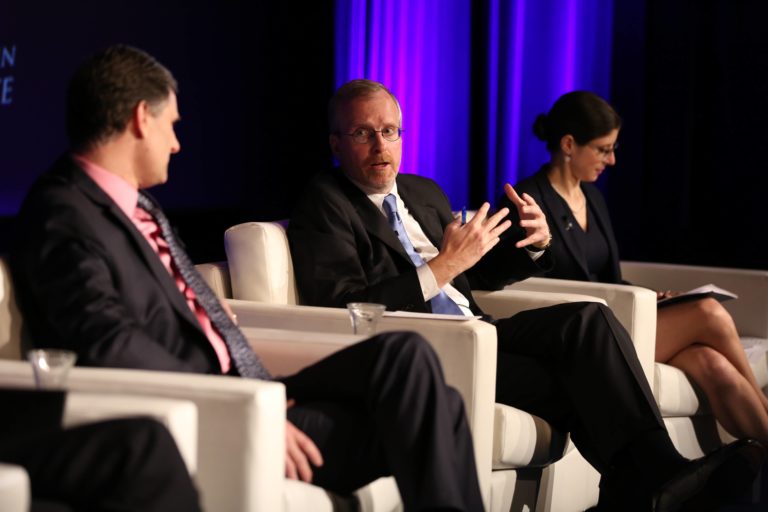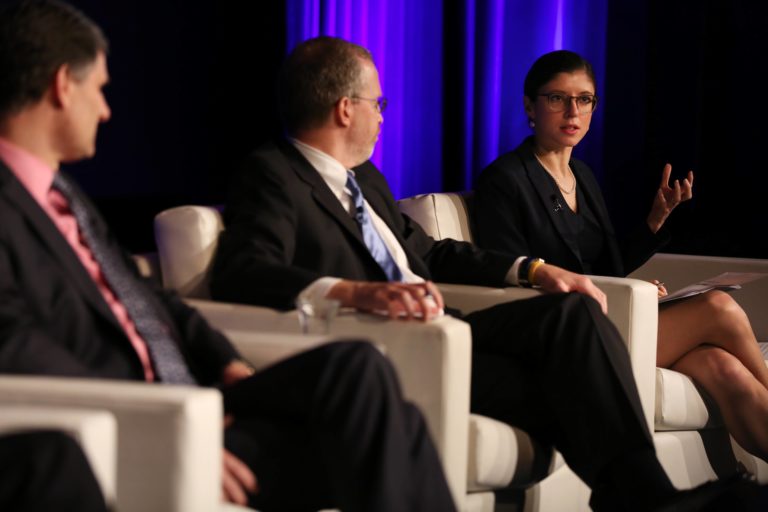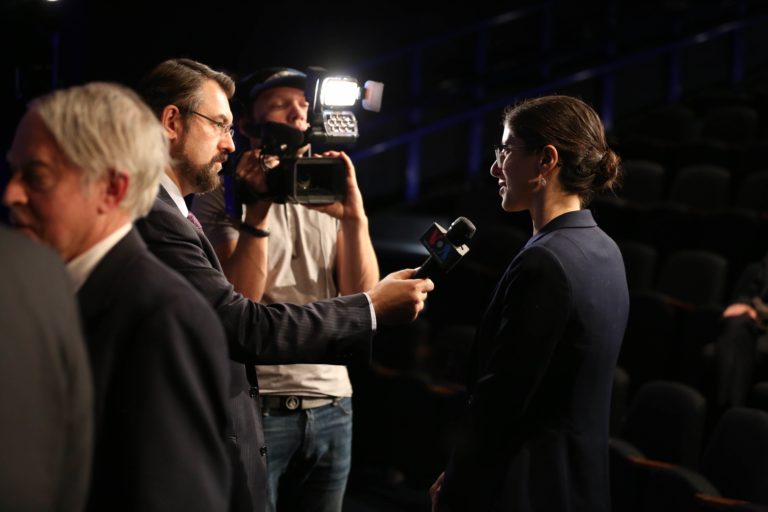Video: Event Recap
Event Summary
On Thursday, October 27, 2016, the McCain Institute for International Leadership at Arizona State University hosted the debate: “After the U.S. Election: Time to Re-Engage Russia?” Debaters included: Thomas Graham, Managing Director, Kissinger Associates; Paul Saunders, Executive Director, Center for the National Interest; David J. Kramer, Senior Director for Human Rights and Democracy, The McCain Institute for International Leadership; and Alina Polyakova, Deputy Director, Dinu Patriciu Eurasia Center, and Senior Fellow, Future Europe Initiative, Atlantic Council. Ambassador Kurt Volker, Executive Director of The McCain Institute for International Leadership, served as moderator.
The debate centered on whether the next U.S. administration should re-engage with Russia or not.
THE KEY ARGUMENTS
Arguments that the United States should indeed re-engage Russia:
• Russia is simply too big and too important for the United States to attempt to isolate. Even if a U.S.-Russian partnership is not possible, containment cannot be the solution either. We must strike the right balance that takes into account Russia’s interests.
• Engaging Russia is not about trust but rather the alignment of interests. The United States and Russia have successfully worked together in Afghanistan after 9/11, the removal of chemical weapons from Syria, and the Iran nuclear negotiations.
• The United States has set itself up for failure by promising NATO membership to countries such as Ukraine and Georgia but not following through. It is American policy that has created a gray zone situation in those places.
Arguments that the United States should not re-engage Russia:
• Russia’s foreign aggressions follow a consistent pattern, including an increasingly repressive environment inside Russia. Both the Bush and Obama administrations tried engagement with Russia; trying a third time as long as Putin is in power won’t work.
• While there might still be potential for cooperation between the United States and Russia in certain areas, the problem is Moscow’s unwillingness to abide by the agreements it enters into—such as the Minsk agreements on Ukraine–and Putin’s demonization of the West.
• The West did not create the gray zone in Eastern Europe—Russia did so by continuing to assert a sphere of influence over countries such as Ukraine and Georgia, despite their own independence and interests. Ukraine was not on the verge of joining NATO when Russia invaded Crimea, but now support for this is much higher in Ukraine.
POLICY RECOMMENDATIONS
Thomas Graham called for opening up the channels of communication between Washington and Moscow and for the United States to carry out a holistic re-assessment of its Russian policy.
Paul Saunders stressed the need to re-initiate military-to-military contacts between the United States and Russia in order to be able to deescalate potential future crises.
David J. Kramer argued the United States should make clear that it is ready to increase the pressure on Russia if its actions in Ukraine and Syria do not change. Only if Putin changes his behavior should the United States be willing to scale back its pressure.
Alina Polyakova urged Russia to prove its trustworthiness or otherwise face additional sanctions. This is not the time to be making concessions to Russia.
SPEAKERS
ARGUING THAT YES, THE UNITED STATES SHOULD ENGAGE WITH RUSSIA:
Thomas Graham
Managing Director, Kissinger Associates
Paul Saunders
Executive Director, Center for the National Interest
ARGUING THAT NO, THE UNITED STATES SHOULD NOT ENGAGE WITH RUSSIA:
David J. Kramer
Senior Director for Human Rights and Democracy, The McCain Institute for International Leadership
Alina Polyakova
Deputy Director, Dinu Patriciu Eurasia Center; Senior Fellow, Future Europe Initiative, Atlantic Council
MODERATING THE DEBATE
Amb. Kurt Volker
Executive Director, The McCain Institute for International Leadership
